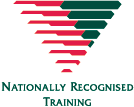“RTO” or “Registered Training Organisation” is something you may have come across in your search for information on the world of adult education and professional training. Maybe you are looking for a career change, a promotion, a way to increase your earnings or just formal recognition for the skills you have already developed on the job, an RTO could be the right learning journey for you to achieve these goals.
What is an RTO?
A Registered Training Organisation, commonly referred to as an RTO, is an entity recognised and authorised by the regulatory authorities in a specific country or region to provide vocational education and training. RTOs play a crucial role in delivering quality training programs that lead to nationally recognised qualifications and certifications.
In Australia, RTOs are registered with the Australian Skills Quality Authority (ASQA) or the relevant state or territory regulatory bodies. These organisations undergo rigorous assessments and audits to ensure compliance with the required standards and guidelines set by the authorities.
What does an RTO do?
- Design and Develop Training Programs: RTOs create structured training programs tailored to industry needs and based on national training packages or accredited courses. These programs cover a range of vocational areas, providing learners with the knowledge and skills required to enter or progress within specific industries.
- Deliver Training and Assessment: RTOs are responsible for delivering the training programs to learners, either through face-to-face instruction, online platforms, or a combination of both. They also conduct assessments to evaluate the learners’ competency and ensure they meet the required standards.
- Issue Nationally Recognised Qualifications: One of the primary functions of an RTO is to award nationally recognised qualifications upon successful completion of the training and assessment requirements. These qualifications validate the learners’ skills and knowledge, providing them with tangible proof of their competency.
- Comply with Quality Standards: RTOs must adhere to strict quality standards set by regulatory bodies. They undergo regular audits and assessments to ensure they meet the required criteria related to training delivery, assessment practices, industry engagement, and learner support.
Why study with an RTO?
- Nationally Recognised Qualifications: RTOs offer training programs that lead to qualifications recognised and respected across industries and sectors. This recognition enhances your employability and provides opportunities for career advancement.
- Industry-Relevant Training: RTOs design their programs in consultation with industry experts and employers to ensure they align with current industry needs. This approach equips learners with practical skills and knowledge that are directly applicable in the workplace.
- Quality Assurance: RTOs must maintain high standards of training and assessment to retain their registration. As a result, studying with an RTO assures you of quality education and training delivery, backed by rigorous regulatory oversight.
- Pathways to Further Education: Completing a qualification from an RTO can provide you with credit or recognition towards further education, such as university degrees or higher-level qualifications. This pathway opens doors to higher learning and professional development.
- Recognition of Prior Learning (RPL): Some RTOs offer Recognition of Prior Learning (RPL) processes that assess and recognise your existing skills, knowledge, and experience. RPL can provide credit towards a qualification, allowing you to fast-track your learning journey and focus on areas where you need further development. By utilising RPL, you can save time, avoid duplicating your learning efforts, and demonstrate your competency, enhancing your employability and opening doors to new career opportunities.
Registered Training Organisations (RTOs) are integral to vocational education and training, offering a wide range of nationally recognised qualifications.
As authorised providers of quality training, RTOs bridge the gap between education and industry, equipping learners with practical skills and knowledge essential for career success.
See our blog post on How to Choose an RTO to help you on your journey.



What’s up, I log on to your new stuff on a regular basis.
Your writing style is awesome, keep up the good work!
Thanks so much! Let us know if there are any particular topics you would like to see. More to come.